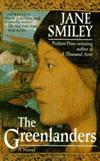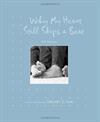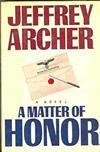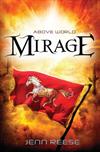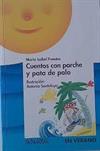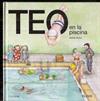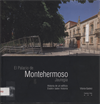
The Map That Changed the World
3 journalers for this copy...
At some point in this book, Simon Winchester points out that it's a great fault that there is no Nobel Prize for geology, and I may agree after reading this book. It tells the story of William Smith, "the father of modern geology", and all his ambitions and enemies. And there were many enemies. Reading The Map That Changed The World, or for example some of Stephen Jay Gould's essays, you realise just how shocking the idea of strata and fossiles were to the minds and rulers of the 18th-19th century. Even more so than Darwin, but Darwin's work is in many aspects about us, while geology is about... well, rocks, so it's not as interesting to us. But it should be, and Simon Winchester does a good job of pointing this out, as well as balancing the personal, the political and the factual.
Bringing this to the Meetup today.
Too-Ticki told me to read this one, since I liked The Surgeon of Crowthorne by the same author. It's a subject I'd probably never have chosen myself, but I like being challenged and it looks interesting. Thanks!
I thoroughly enjoyed reading this book while driving round Britain, being able to see some if the places mentioned. I didn't have the chance to go and see the actual map in Burlington House, Piccadilly, but I bought an ammonite in the small town of Staithes, North Yorkshire, where we stayed for a week. It's a Hildoceras Bifrons, which is the one shown at the beginning of chapter 5 and named after St. Hilda, Abbess of Whitby. I didn't realise that geology could be this interesting. Thanks for making me read this book, Too-Ticki!
tutmarie told me a lot about this great book so I also want to read it. Too-Ticki lends it to me now after tutmarie has read it. Thanks. Looking forward to an interesting read!
Today I started reading this one.
And today I finished it. It has accompanied me on my commuting trips between Copenhagen and Helsingborg to and from University so I could only read it when I did not have to do "homework".
An interesting book. A fascinating thought that William Smith´s work in early geology somehow became a basis on which Darwin could build his ideas which became "The Origin of Species".
William Smith was born in 1769 - the same year when Watt built his first steam engine. So this year the industrial revolution began. Also, the word "industry" got it's present meaning that year.
Smith's discoveries and interpretation of the fossils and strata took place at the same time as the early part of the industrial revolution in the first decades of the nineteenth century and they also became a kind of predecessor or inspiration to Darwin's revolutionary evolution theory.
At this time the common view was that earth and man was created by God 4004 BC. Smith's discoveries around 1800 and Darwin's theory in the middle of the nineteenth century lead to the twentieth century's modernity which is closely related to industrialism and science which was both mainly developed in the nineteenth century.
It is interesting that William Smith saw the different strata by lowering himself into mineshafts. Aided by late eighteenth century's modern technology he became enabled to start a science about very old days.
Jethro Tull.
An interesting book. A fascinating thought that William Smith´s work in early geology somehow became a basis on which Darwin could build his ideas which became "The Origin of Species".
William Smith was born in 1769 - the same year when Watt built his first steam engine. So this year the industrial revolution began. Also, the word "industry" got it's present meaning that year.
Smith's discoveries and interpretation of the fossils and strata took place at the same time as the early part of the industrial revolution in the first decades of the nineteenth century and they also became a kind of predecessor or inspiration to Darwin's revolutionary evolution theory.
At this time the common view was that earth and man was created by God 4004 BC. Smith's discoveries around 1800 and Darwin's theory in the middle of the nineteenth century lead to the twentieth century's modernity which is closely related to industrialism and science which was both mainly developed in the nineteenth century.
It is interesting that William Smith saw the different strata by lowering himself into mineshafts. Aided by late eighteenth century's modern technology he became enabled to start a science about very old days.
Jethro Tull.

